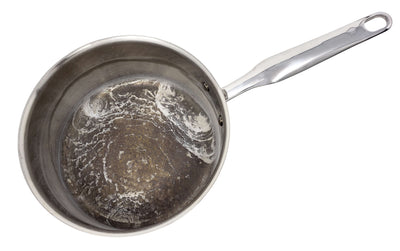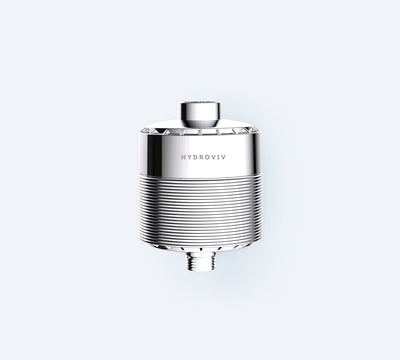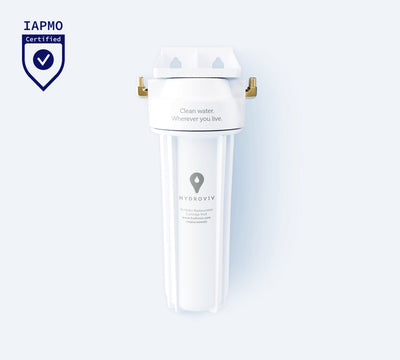What’s Causing White Chalky Residue On My Stainless Steel Cookware?
RSS
Dr. Eric Roy | Hydroviv's Founder
We get a lot of questions about the white chalky residue that can sometimes pop up on cookware. While the idea of residues on things used to prepare food in can cause anxiety... they are usually completely harmless! To check out water filters that remove contaminants from drinking water, check out this Duke/NC State study.
What Is The White Chalky Residue On Cookware?
What is hard water? In nearly all cases, the white residue is from calcium and magnesium-containing minerals that are found in tap water. The minerals build up on pans when water boils, evaporates, and leaves them behind. If the mineral deposits have "baked on," a normal dishwasher cycle typically won't be enough to remove them. In fact, if you use a natural dish washing detergent, the residue can actually get worse!
How To Get Rid Of White Residues On Stainless Steel Cookware?
Even though hard water mineral build-ups on cookware are harmless, they are unsightly and some people want them gone. Fortunately, this is very easy to do! Mix up a 3:1 solution of water and vinegar (any kind), put the solution in the affected pot or pan (make sure to completely submerge the mineral deposits), and turn heat it up on the stove. Once the water starts to get near boiling, shut off the burner, and let the hot liquid dissolve the mineral buildup. Sometimes it helps to give the solution a few swirls every once in a while. Once the buildup has dissolved, dump out the vinegar solution, rinse the pot with cool water, and wipe the pot dry. Easy peasy!
Hydroviv's Technical Support Team enjoys answering all kinds of water-related questions, including how to remove hard water stains from pots and pans! Reach out through Live Chat, or by dropping us an email (hello@hydroviv.com).
Related ArticlesEasiest Way To Fix Hard Water Problems
Are "Whole House" Water Filters The Ultimate Answer?
Are TDS Meters A Marketing Gimmick Or Useful Tool?




